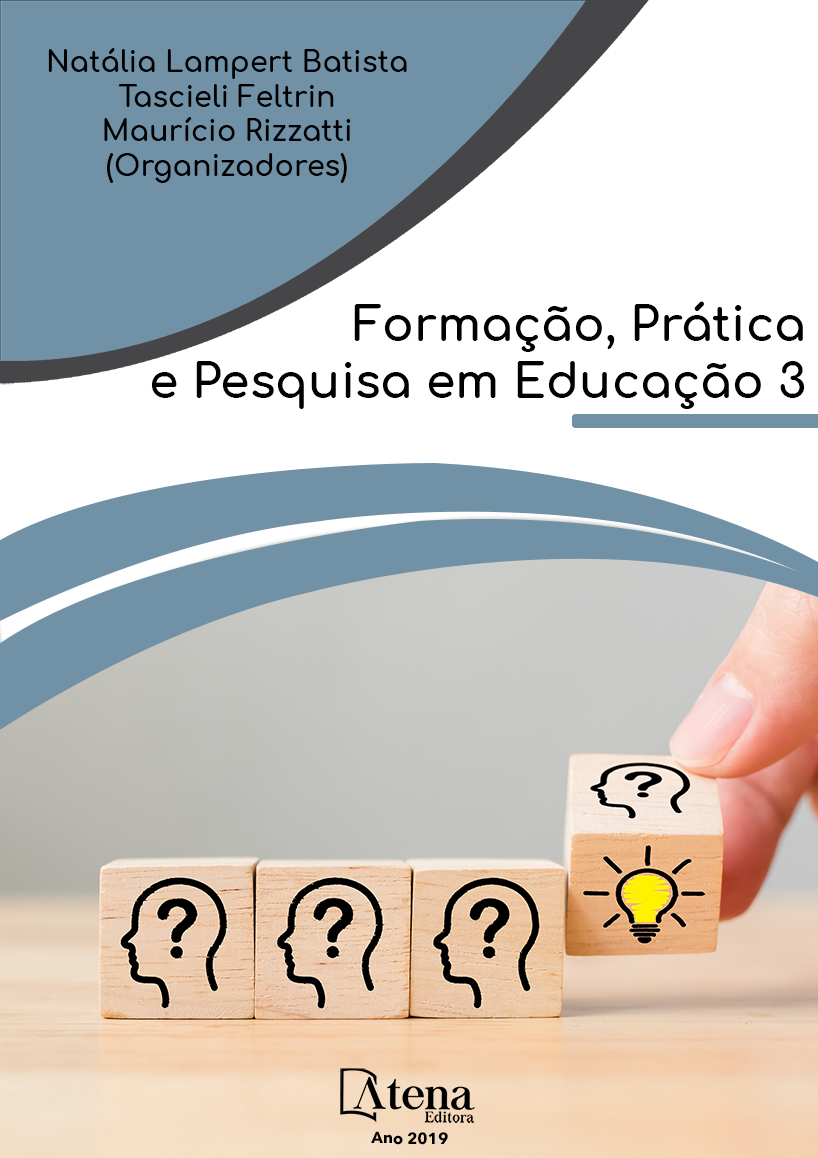
AVALIAÇÃO DA APRENDIZAGEM NA EDUCAÇÃO FÍSICA ESCOLAR NA REDE MUNICIPAL DE SÃO PAULO E PAULO FREIRE: APROXIMAÇÕES E DISTANCIAMENTOS
Este trabalho tem por objetivo
apresentar e discutir a temática da avaliação
da aprendizagem na área da Educação Física
escolar, além de apontar suas relações com
os currículos que ainda se fazem presentes no
cotidiano escolar e nas práticas pedagógicas
dos professores que atuam na Educação
Básica, especialmente, em escolas da rede
pública da cidade de São Paulo. Para isso,
realizou-se uma pesquisa de abordagem
qualitativa, de caráter descritivo e exploratório,
que recorreu à observação como técnica para
coleta dos dados. A análise e interpretação dos
dados foram realizadas à luz do Paradigma
Indiciário, proposto por Carlos Ginzburg em
1989. O pano de fundo do estudo realizado é
constituído pelas produções sobre cotidiano
escolar, inclusive, sobre os estudos no/do/com
o cotidiano. Após a interpretação dos indícios
gerados, confirmou-se que a influência de Paulo
Freire na Educação e na Educação Física e a
convergência de suas ideias com o currículo
cultural que orienta as ações docentes dos
professores da rede municipal de São Paulo, se
mostram atuais, e ainda uma alternativa para os
problemas e os desafios enfrentados por esses
atores no cenário escolar. Ademais, destaca-se
que o itinerário pedagógico construído a partir
dos preceitos freirianos, culmina em práticas
avaliativas que ultrapassam o paradigma
conservador de simplesmente mensurar e
quantificar os resultados obtidos. As avaliações
propostas por esses professores se constituem
em um diálogo com a realidade não apenas
das unidades escolares, mas dos educandos,
que manifestam os conhecimentos advindos do
cotidiano vivido e os conhecimentos científicos
apreendidos nas aulas
AVALIAÇÃO DA APRENDIZAGEM NA EDUCAÇÃO FÍSICA ESCOLAR NA REDE MUNICIPAL DE SÃO PAULO E PAULO FREIRE: APROXIMAÇÕES E DISTANCIAMENTOS
-
DOI: 10.22533/at.ed.92119030912
-
Palavras-chave: Educação Física, Escola, Avaliação, Paulo Freire.
-
Keywords: Physical Education, School, Evaluation, Paulo Freire.
-
Abstract:
The objective of this work is to
present and discuss the evaluation of learning
in the area of Physical Education in school,
and to point out its relations with the curriculum
still present in the school daily life and in the
pedagogical practices of the teachers that
work in Basic Education, especially, in schools
of the public network of the city of São Paulo.
For this, a qualitative research was carried out,
of descriptive and exploratory character, that
resorted to the observation as technique for data
collection. The analysis and interpretation of the
data were carried out in the light of the Indicium
Paradigm, proposed by Carlos Ginzburg in
1989. The background of the study is made up
of productions about daily school life, including
about the studies in/with/with daily life. After the interpretation of the indications generated, it was confirmed that the influence of
Paulo Freire on Education and Physical Education and the convergence of his ideas
with the cultural curriculum that guides the teaching actions of the teachers of the
municipal network of São Paulo, are shown present an alternative to the problems and
challenges faced by these actors in the school setting. In addition, it is worth noting
that the pedagogical itinerary constructed from the Freirean precepts culminates in
evaluative practices that go beyond the conservative paradigm of simply measuring and
quantifying the results obtained. The evaluations proposed by these teachers constitute
a dialogue with the reality not only of the school units, but also of the students, who
manifest the knowledge derived from the daily life lived and the scientific knowledge
learned in class
-
Número de páginas: 15
- Vilma Lení Nista-Piccolo
- Alessandra Andrea Monteiro


